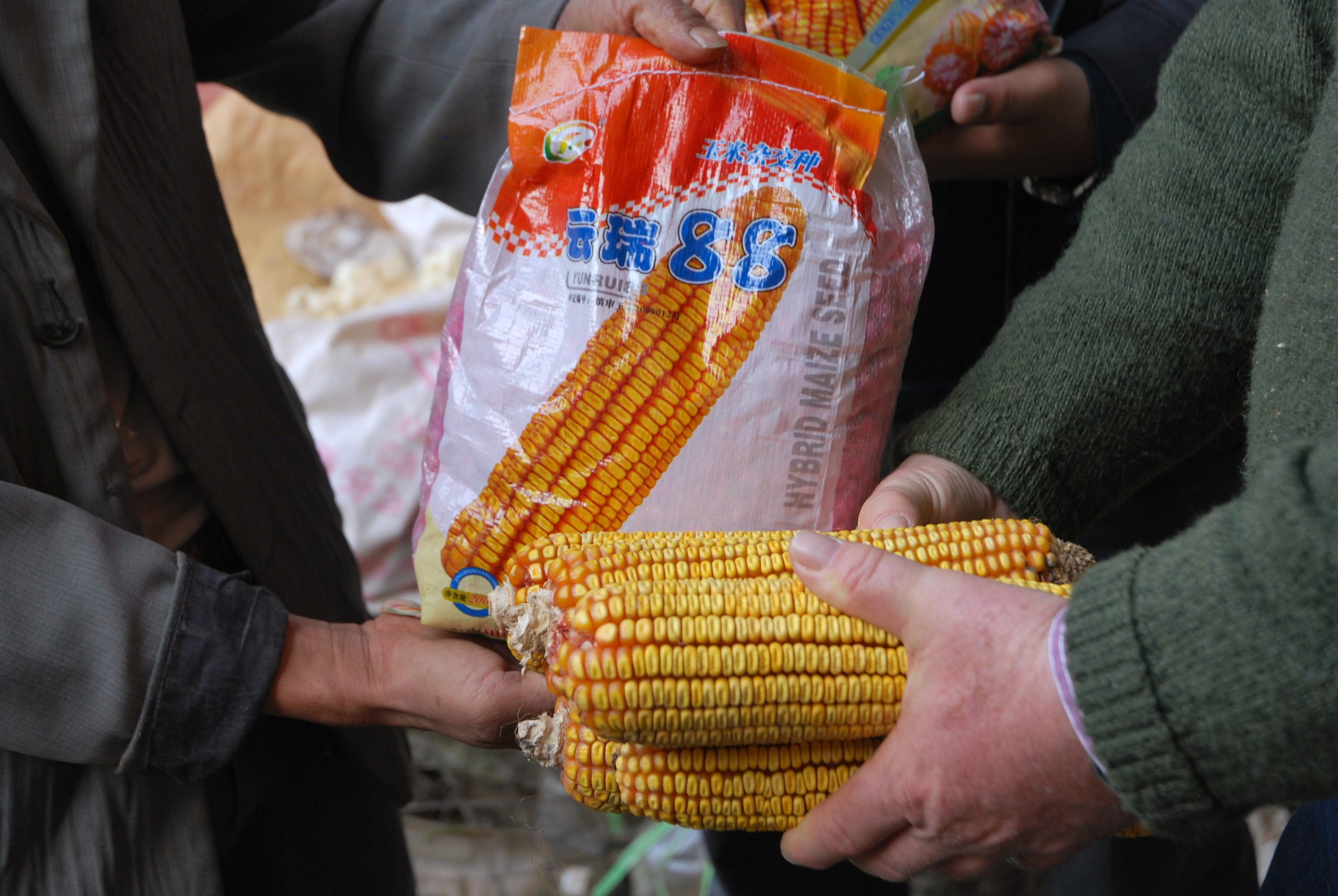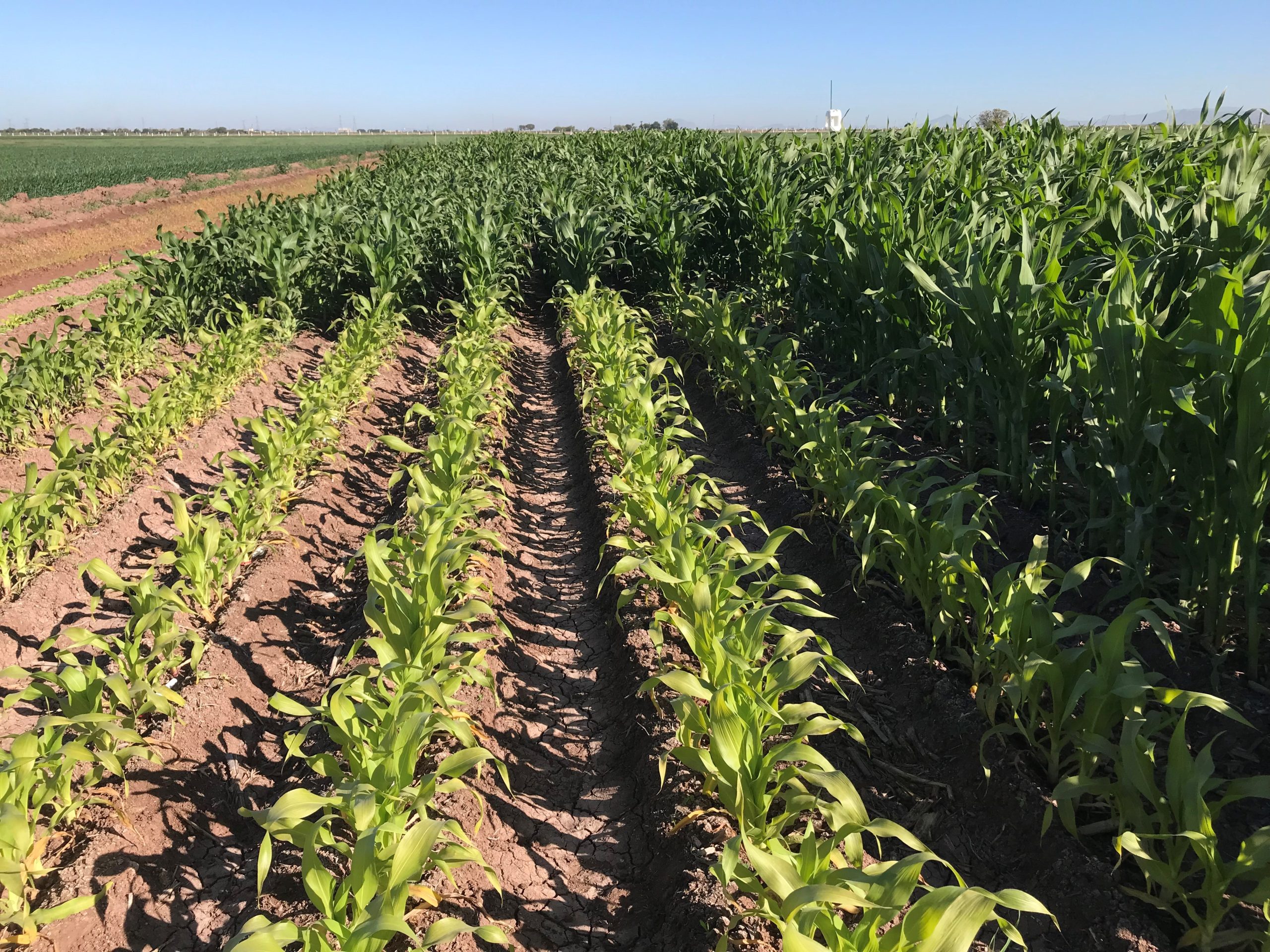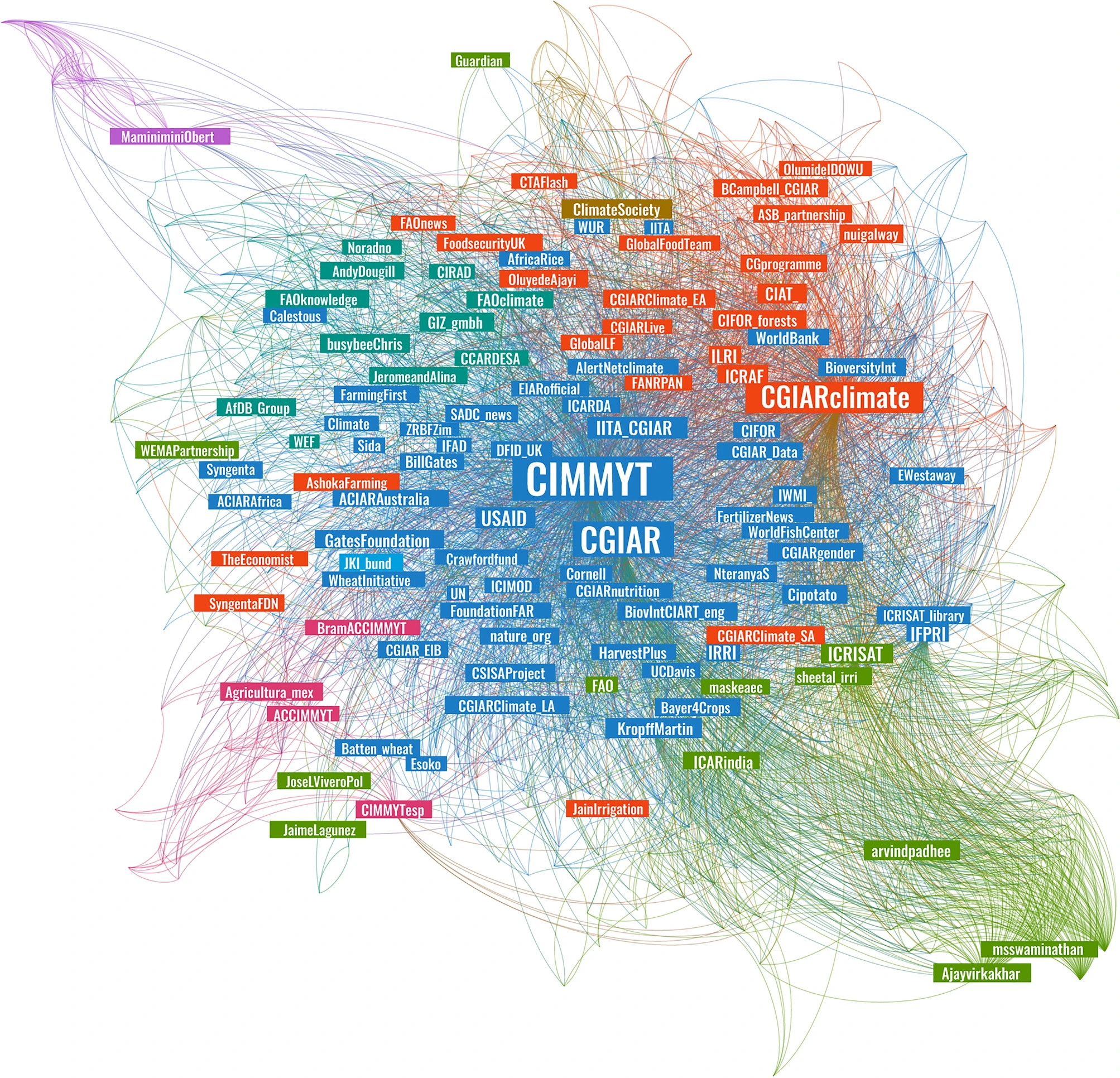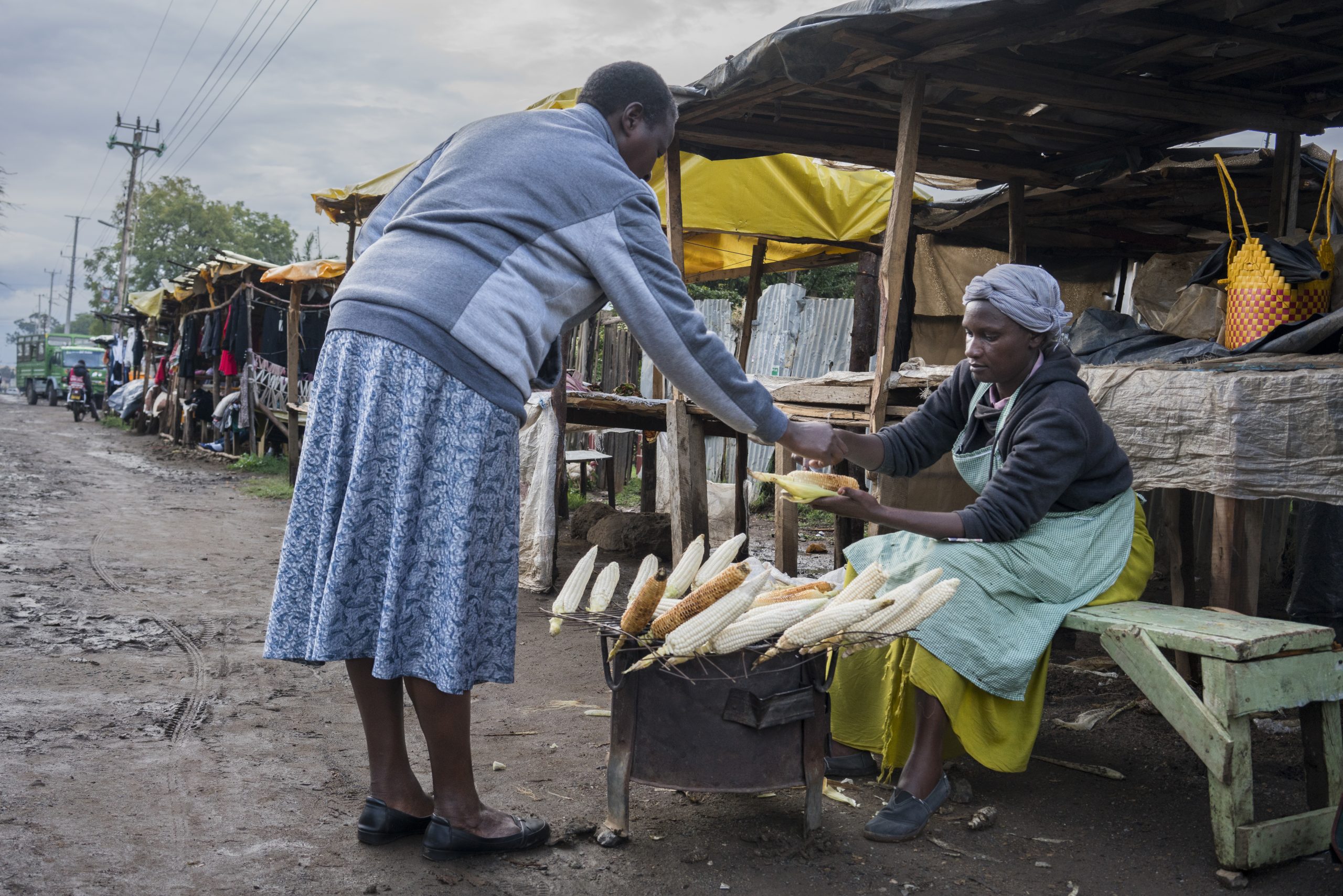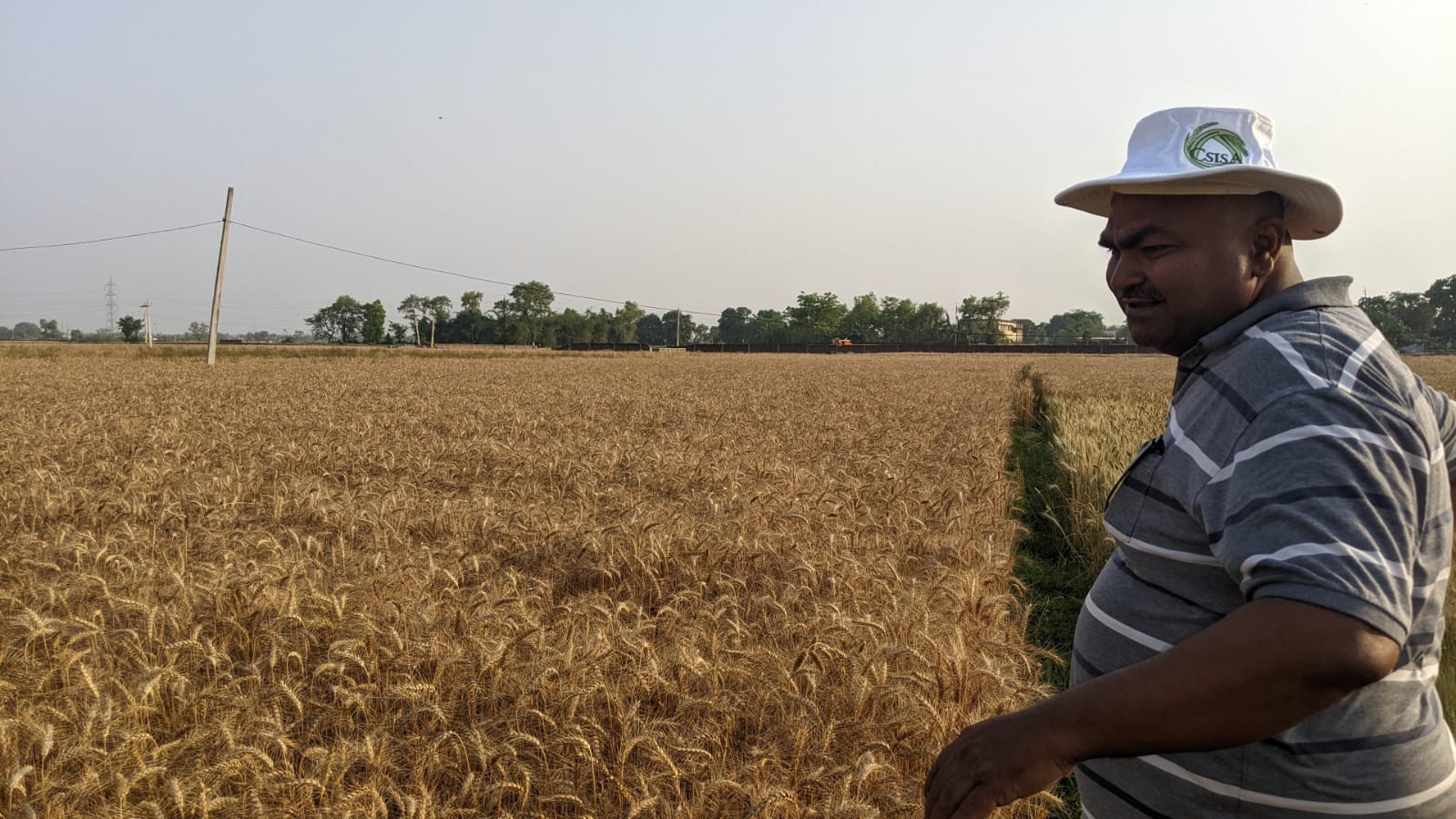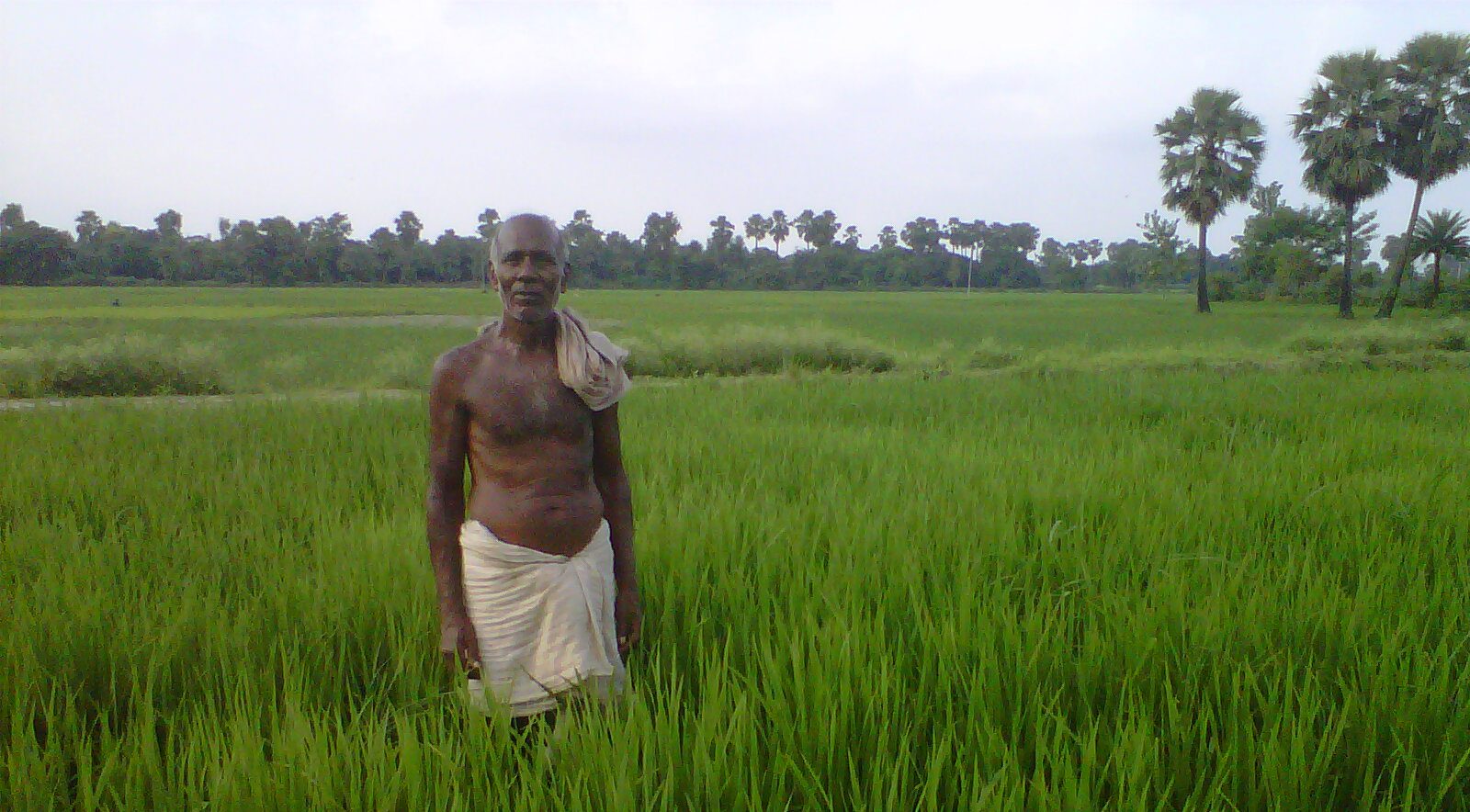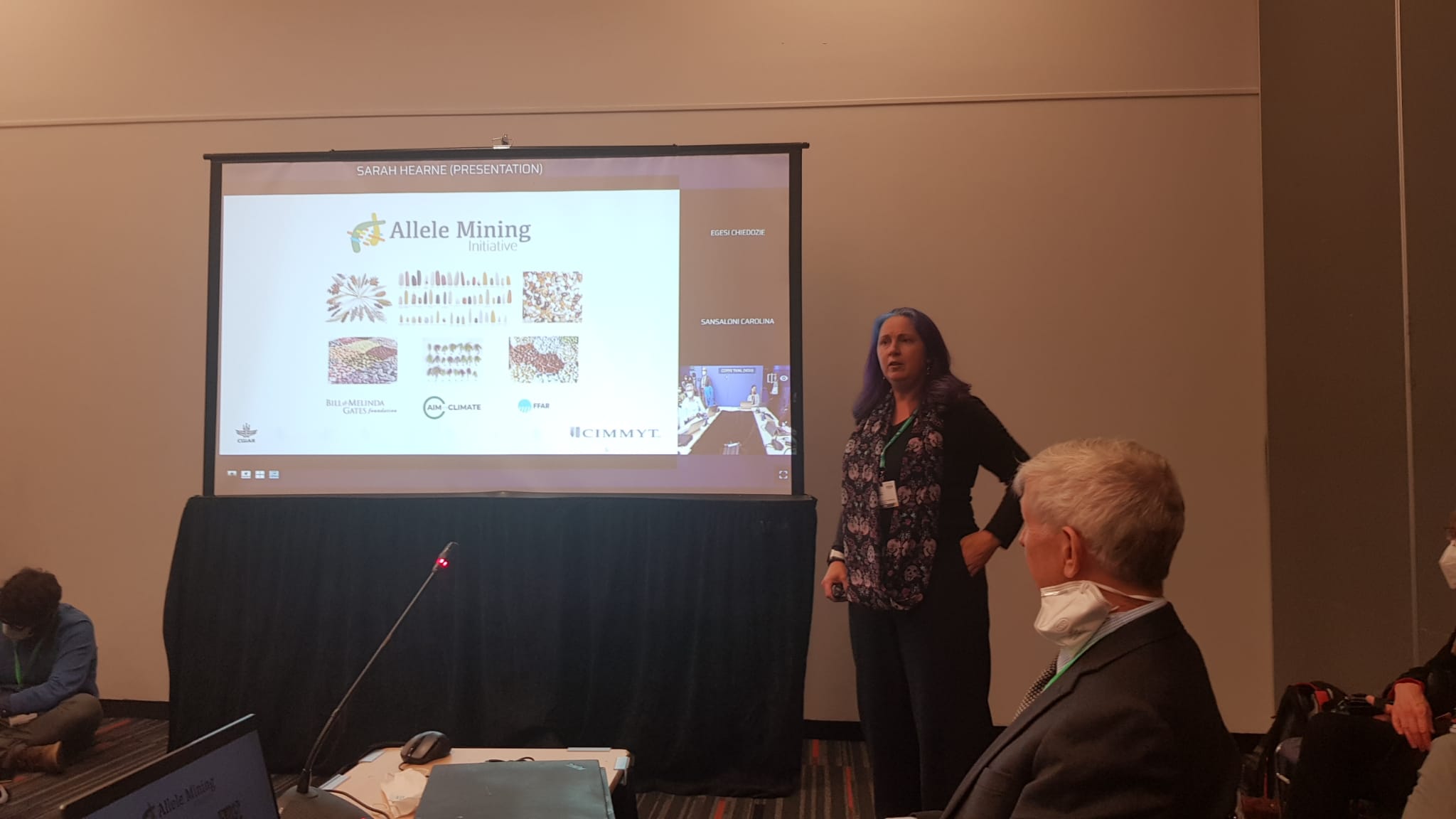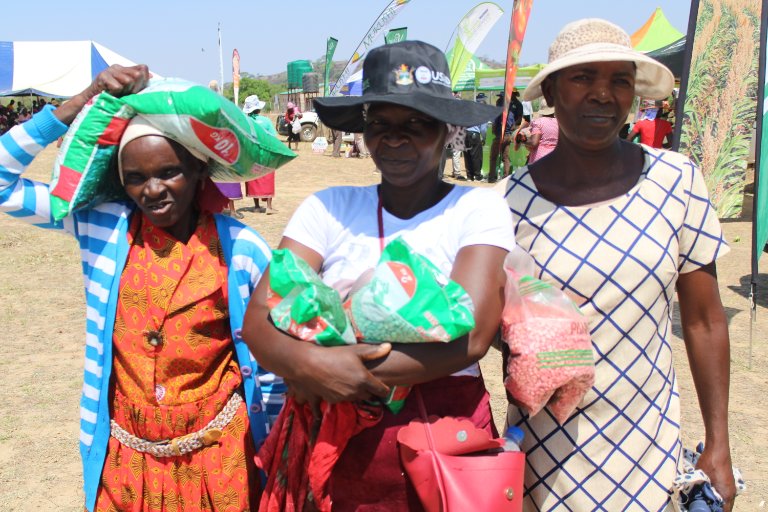Climate adaptation and mitigation
Climate change threatens to reduce global crop production, and poor people in tropical environments will be hit the hardest. More than 90% of CIMMYT’s work relates to climate change, helping farmers adapt to shocks while producing more food, and reduce emissions where possible. Innovations include new maize and wheat varieties that withstand drought, heat and pests; conservation agriculture; farming methods that save water and reduce the need for fertilizer; climate information services; and index-based insurance for farmers whose crops are damaged by bad weather. CIMMYT is an important contributor to the CGIAR Research Program on Climate Change, Agriculture and Food Security.
‘Farmers now more aware about climate resilient agri’
 Climate adaptation and mitigation
Climate adaptation and mitigation
Source: Times of India (20 Jan 2023)
Farmers in India learn how to adapt their methodologies to climate change.
CIMMYT-China workshop aims to facilitate future collaborations to battle climate change
 Climate adaptation and mitigation
Climate adaptation and mitigation
CIMMYT scientists and their Chinese counterparts discuss best methods for protecting food crop production from climate change.
Closing the investment gap for sustainable agriculture
 Climate adaptation and mitigation
Climate adaptation and mitigation
Source: Global Trade Review (16 Jan 2023)
The Ukraine crisis has triggered spikes in food and fertilizer prices, increasing poverty and hunger worldwide. But with a significant financing gap in investments aimed at supporting food systems, could unlocking new markets prove a fruitful way of mitigating food insecurity?
Exotic wheat DNA helps breed ‘climate-proof’ crops
 Climate adaptation and mitigation
Climate adaptation and mitigation
Source: Phys.org (10 Jan 2023)
Wheat containing exotic DNA from wild relatives benefits from up to 50 percent higher yields in hot weather compared with elite lines lacking these genes, according to a new study.
Identifying climate mitigation strategies from AFOLU sector in Mexico
 Climate adaptation and mitigation
Climate adaptation and mitigation
CIMMYT researchers comb through data to enumerate the benefits, and costs, of specific climate mitigation initiatives in the AFOLU sector of Mexico.
Tracking the development and reach of CIMMYT’s climate research
 Climate adaptation and mitigation
Climate adaptation and mitigation
Researchers provide data-driven approach to systematically analyze the production and diffusion of knowledge on food systems and climate change.
In maize research, farmers’ priorities are our priorities
 Climate adaptation and mitigation
Climate adaptation and mitigation
New CIMMYT research sheds light on farmer maize preferences in Ethiopia and western Kenya.
Mexico Agriculture: Thrive on the Shift from Efficiency to Resiliency
 Climate adaptation and mitigation
Climate adaptation and mitigation
Source: AgNews (29 Dec 2022)
CIMMYT Director General Bram Govaerts looks at challenges facing Mexican and global agricultural systems.
A reluctant farmer changes the fortune of his inherited land
 Climate adaptation and mitigation
Climate adaptation and mitigation
Ravi Ranjan took to farming after the death of his grandfather and, despite his initial apprehension about working in agriculture, has never looked back.
How a policy to address a groundwater shortage inadvertently increased air pollution in northern India
 Climate adaptation and mitigation
Climate adaptation and mitigation
Source: Tech and Science Post (15 Dec 2022)
The seemingly small shift in the planting season had a cascading effect that delayed the fire season by about two weeks and exacerbated air pollution.
Sustainability of rice production in the Northwestern Indo-Gangetic Plains
 Climate adaptation and mitigation
Climate adaptation and mitigation
Scientists determine nitrogen use could be reduced without impacting rice yields for sustainability of rice production in Northwestern Indo-Gangetic Plains.
The importance of germplasm in protecting nature
 Climate adaptation and mitigation
Climate adaptation and mitigation
At COP15, CIMMYT scientists highlighted the significance of DSI in conserving, exploring, and utilizing biodiversity as part of efforts to sustainably nourish the global population in a nature positive manner.
Combining improved seed varieties and index insurance to address drought losses
 Climate adaptation and mitigation
Climate adaptation and mitigation
Source: VoxDev (5 Nov 2022)
Paswel Marenya, Adoption and Impact Assessment Economist at CIMMYT, explains on a podcast how bundling genetic and financial technologies can make small-scale agriculture more resilient and productive.
Smallholder farmers embrace climate-smart seed and mechanization fairs
 Climate adaptation and mitigation
Climate adaptation and mitigation
Around one thousand farmers flocked to a recent two-day climate-smart seed and mechanization fair in Zimbabwe’s Masvingo district, signaling strong interest in these two climate adaptation strategies.
A renewed CGIAR can better support South Asia to determine its food future
 Climate adaptation and mitigation
Climate adaptation and mitigation
Source: Mongabay (13 Dec 2022)
Temina Lalani-Shariff, Regional Director of South Asia at CGIAR, explains CGIAR is evolving so that it can continue to be the scientific partner of choice for national research institutes and governments.

